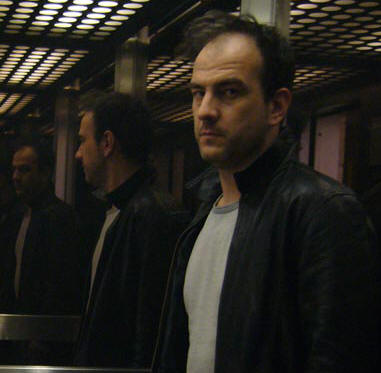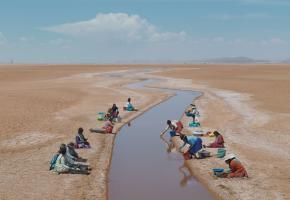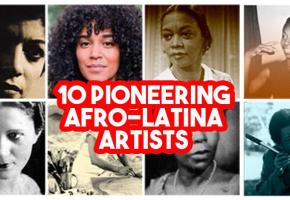Historias de Lavapiés follows Ernesto (Guillermo Toledo) as he experiences first-hand, and through word-of-mouth, the difficulties and conflicts brought about by the devastating economic crisis and the large immigrant population of Lavapiés, a multicultural neighbourhood of Madrid.
Sandra Collantes, the actress who plays one of the film’s protagonists, was determined to make clear in her introduction to the film at the London Spanish Film Festival that Historias de Lavapiés is a labour of love, prioritising “creativity over economical limitations.” This much is undoubtedly clear; despite the film being low-budget, there is no apparent compromise in any area of the film. The film is a faithful reflection of everyday events, and this lends it an irresistibly unassuming and very human nature.
LatinoLife: You lived in Lavapiés for five years. Did you base the plot on your personal experiences?
Ramón Luque: Yes. Not every plot in the film is completely based on my own experiences, some are those of friends or something that I read in the newspaper. But yes, a large proportion of the film’s plots I myself lived in Lavapiés. They are small experiences, things that happen on a daily basis, but they are significant because they reveal what it really means to live in an neighbourhood as special as Lavapiés.
LatinoLife: So does the film have a political or social message concerning immigration?
Ramón Luque: My idea was to reflect the everyday events of the neighbourhood and how people live their lives, including the conflicts and the almost-conflicts which they have to face. It doesn’t have a concrete message as such; the idea was to transmit a certain hope. The hope that, in spite of the fact that life is hard and will continue to be hard, we can still rely on there being solidarity, love and friendship between human beings despite their differences.
LatinoLife: How did the film’s modest topic, of everyday people in everyday situations, affect the way you made the film?
Ramón Luque: I wouldn’t say that there was a lot of improvisation, but the actors did have a lot of freedom in terms of the development of their characters and to change the script accordingly, such as including improvised lines. This helped to make the acting come across as natural as possible.
LatinoLife: You also work as an academic and have written books on film. How did you become a director?
Ramón Luque: It was a very slow process. I studied Journalism at university, I worked in radio and television, then I directed a university radio show. I did my doctorate in cinema and began to give classes, and as I had experience in things like radio and television, it seemed natural to go from the theory of cinema to the more practical aspect of it. It all started with a book I published on Woody Allen as part of my thesis. How ridiculous was that, to write so seriously about such a fun director? The best way to pay homage was to film a movie about him, so we did, which was called Proyecto Manhattan (Luque’s first film), and I realised that making films was a better way of studying film as well as of studying the world.
[[{"type":"media","view_mode":"media_large","fid":"3537","attributes":{"alt":"","class":"media-image","height":"360","typeof":"foaf:Image","width":"540"}}]]
LatinoLife: And did Woody Allen influence Historias de Lavapiés?
Ramón Luque: Yes, a little bit. You can see it in the frame, in the naturalist tone of the film, the uncomplicated movement of the camera. Like Allen’s films, Historias de Lavapiés is based on its characters and the dialogue between them, more than in the visual or cinematographic quality of the film. Woody Allen isn’t a filmmaker in the sense that Alfred Hitchcock or David Lynch is, he is more a writer that happens to make films. I don’t consider myself to be much like them, I work more in the style of Allen.
LatinoLife: What is the current situation of independent filmmaking in Spain?
Ramón Luque: It’s a disaster, it really is dramatic. The Spanish government doesn’t use legislation to protect the film industry, quite the contrary. They raised taxes and got rid of grants. We’re living in a very difficult time in terms of filmmaking. While there are still some box-office hits which save Spanish cinema from collapse, independent cinema and films that want to tell real-life stories have been hit hard. The crisis really has affected the arts more than anything. But we’re still fighting.
LatinoLife: And you made it here!
Ramón Luque: And we made it here!
For Latino Life’s review of Historias de Lavapiés, visit: http://www.latinolife.co.uk/articles/historias-de-lavapies-2014-dir-ram…
















